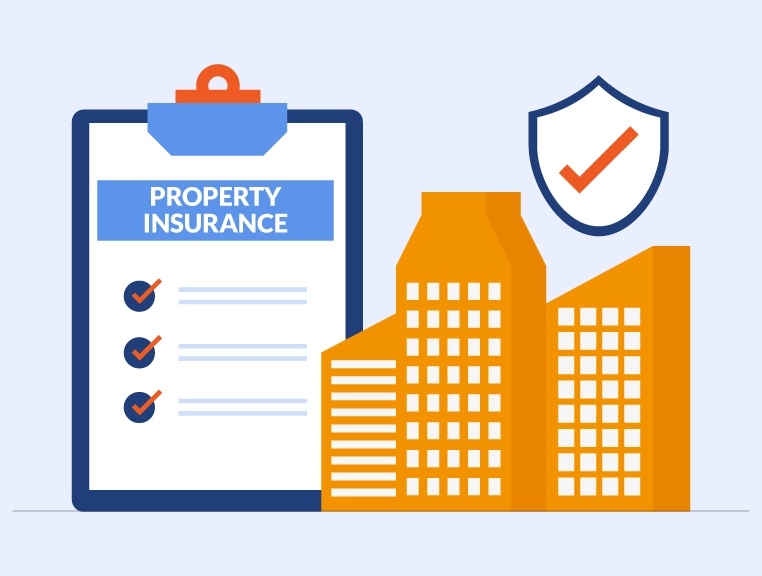At least six people died when a fire erupted at a four-story building of Excel Greentech, an LED packaging office in Noida’s Sector 11. It was lunchtime, and out of 40 staffers, around 15 were at the office, while others went out for lunch. So, massive was the fire, that an adjacent factory located around 10 feet away from Excel Greentech also got partially damaged. By the time the fire was doused, the entire Excel building was entirely burnt.
Read More: Fire Insurance Policy- A Savior during Fire Damage
A fire doesn’t only entail huge financial damages, but it also becomes daunting to combat its consequences. So, having a fire insurance policy is necessary to curtail the financial implications of fire.
Here are some smart things that you should know about a fire insurance policy –
1. Complete protection – A fire insurance policy offers complete coverage by offering protection against damage or destruction that may be caused to movable or immovable property due to fire or other perils.
2. Type of coverage available – There are various properties that are covered under a fire insurance policy like building, plant and machinery, furniture, fixtures, stock, etc.
3. Other perils covered under the policy – In addition to fire, there are various other perils that are also covered under a fire insurance policy. Some of them are natural calamities, explosions, lightning, landslide bursting the water tank, etc.
4. Actual Cash Value Vs. Replacement Cost – Various property insurance policies pay compensation on the basis of the Actual Cash Value (ACV) of the damaged property instead of its replacement cost. Usually, the actual cash value is computed after deducting depreciation from the replacement cost.
For instance, suppose, your building costs Rs 50 lakh. Now, as the building is five years old, it is depreciated by 5 lakh. It means, if you insure your building on the basis of the actual cash value, your fire insurance company will not pay anything more than Rs 45 lakh (50,00,000-5,00,000) in case your building is damaged by fire. You will have to cough up Rs 5 lakh from your pocket.
As items or equipment like machinery, furniture, etc.; are costly to replace, business owners can safeguard themselves against high-end expenses by buying a fire insurance policy and insuring items on a replacement cost basis. If your items are insured on the basis of the replacement cost, then it means, the cost of damaging property or replacing it with a similar kind of property will be borne by the insurer. Note, the replacement cover may cost you more than the actual cash value.
Read More: How to File a Fire Insurance Claim
5. Customisation – As per your requirement, it is feasible to customize the fire insurance policy by including coverages for terrorism risks, loss of profit, etc.
6. Simple documentation – By filling out simple documentation, you can get a wide coverage that insures the physical structure of the building along with its content which may vary from machinery, raw materials, and packaged goods to equipment and electrical appliances and much.
7. Perils not covered or exclusions – While, it is important to know what is covered under a fire insurance policy, it is equally necessary to understand what is not. There are certain perils like loss or damage due to burglary, housebreaking, nuclear perils, nuclear contamination, etc.; which are not covered under the policy.
8. Tenure of the policy – In most cases, a fire insurance policy is issued for one year, except in the case of dwellings, where it is issued for a long period, usually for a minimum of three years.
Here are some pivotal facts related to fire insurance policy –
- Carefully review your fire insurance policy annually to ensure that it covers all your buildings and locations. Make sure that the addresses mentioned in the policy are also correct
- Just because you have a fire insurance policy, it doesn’t mean you can act carelessly when it comes to insuring your goods and services. Act prudently like what you would have done without insurance
- Draft a proper fire prevention plan. Train your employees so that they know what should be done so that the fire doesn’t happen. It should also have safety guidelines that employees should follow when a fire erupts. The proper knowledge of this will help in curtailing the losses or damages to a great extent
- Underinsurance is as bad as no insurance. At the time of any loss or damage, you would have to cough up the part of loss or damage in case the fire insurance coverage is not sufficient
Remember, your business is the result of your efforts, and therefore, it is indispensable to secure it properly. Buying fire insurance is the right step that you can take in this direction.




